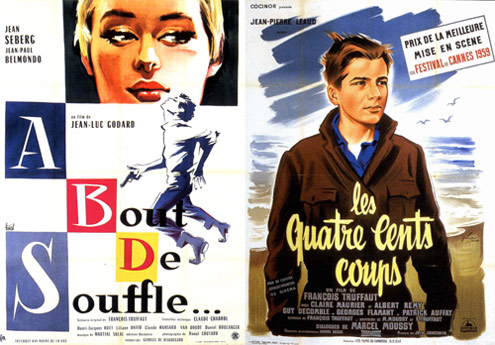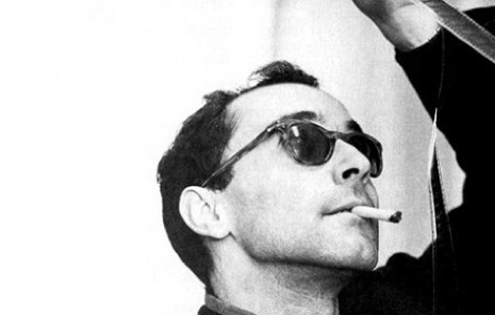In 1950, when he was only nineteen years old, Jean-Luc Godard, one day to become one the great filmmakers, wrote a piece for the French publication Gazette du Cinema called Towards A Political Cinema. Even at this young age, Godard was aware of cinema’s power to communicate ideas.
Jean-Luc Godard examines a strip of film:
Film history describes a wide range of film movements that have each had an often-short lifespan that’s been quite specific but the legacies of which have endured.
A movement in film, or indeed any art-form, is usually centred around a collection of creatively or culturally like-minded people gathered in one place. Such groups come together usually for a relatively short timeframe and then must disband. Soviet Montage was one such movement. Another was the French New Wave, which ran from 1959 until the mid 1960s. It remains one of the most well known and highly regarded of all film movements.
1959 was the watershed year for the French New Wave, with a number of key films released that embodied the movement’s creative and cultural ambitions. Paris Nous Appartient ~ Paris Belongs to Us (Jacques Rivette, 1960), À Bout de Souffle ~ Breathless (Jean-Luc Godard, 1960), Les Cousins ~ The Cousins…

